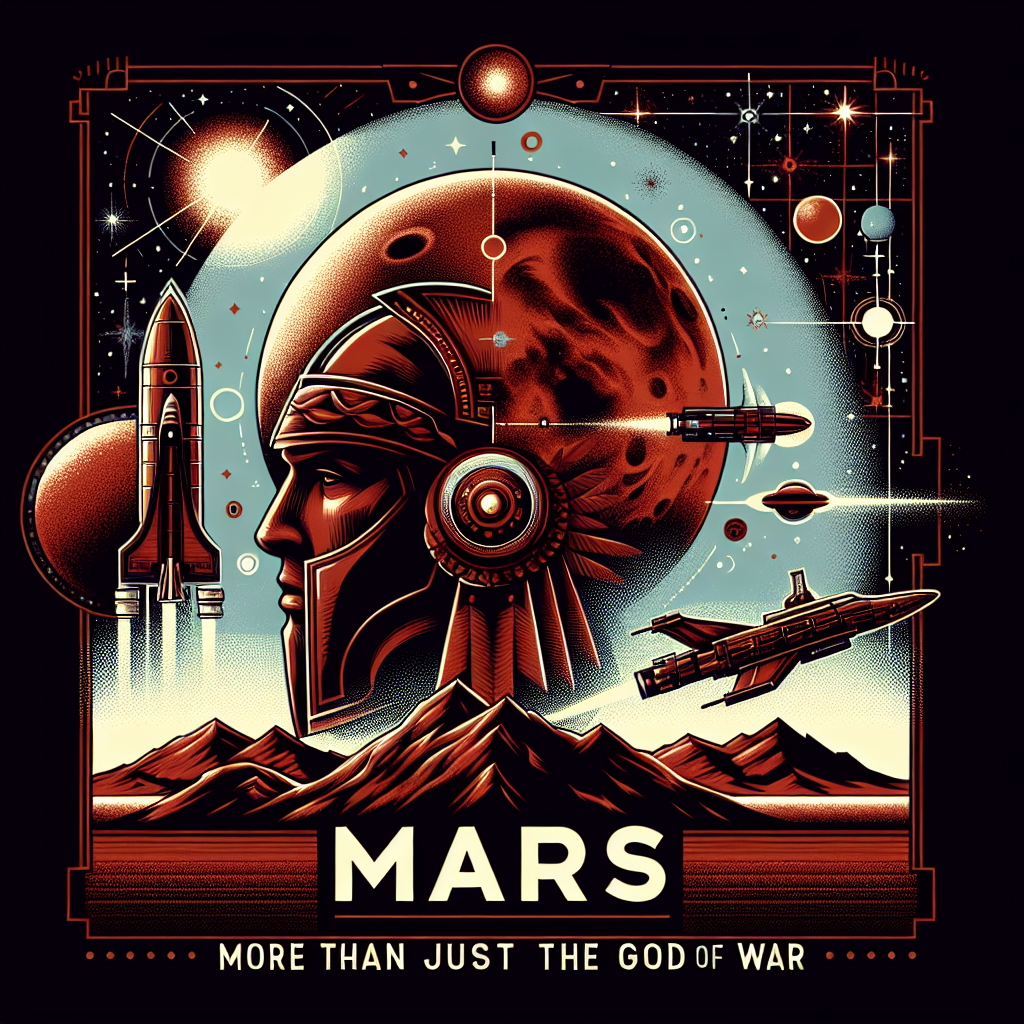When most people hear the name Mars, their minds likely conjure images of a fierce Roman god brandishing weapons and bestowing conflicts upon humankind. The Roman deity, often associated with war and agriculture, was revered in ancient mythology. However, in recent times, the name Mars has also become synonymous with our neighboring planet, capturing the imagination of astronomers, scientists, and everyday enthusiasts. While the traditional interpretations of Mars are rich and compelling, both its mythological and astronomical significance presents a narrative that is far broader and more complex than merely a divinity of battle.
Mythological Roots
The God of War
In Roman mythology, Mars was considered one of the most important gods, second only to Jupiter. His role as the god of war made him a symbol of military might and a patron of soldiers. Unlike the Greek god Ares, who was often portrayed as embodying the chaotic and destructive aspects of war, Mars had a more nuanced personality. He represented not only warfare but also agricultural fertility, reflecting the dual nature of his role in Roman society. Farmers prayed to him for bountiful harvests, linking the cycles of war and peace with cycles of growth and sustenance.
The festivals celebrating Mars, particularly the military festival of Mars Ultor in the Roman calendar, showcased the reverence with which he was held. Such celebrations were not just about warfare but also about community and national strength. Thus, Mars serves not only as a symbol of aggression but also as a protectorate figure, embodying the complexities of civilization.
Cultural Influence
Mars has left an indelible mark on various aspects of culture beyond mythology. The month of March is named after him, a time when the military campaigns would begin in ancient Rome. Artistic depictions from ancient sculptures to Renaissance paintings feature Mars prominently, showcasing his martial prowess alongside depictions of peace and prosperity. Literature, too, has drawn upon the character of Mars, using him as a symbolic figure for valor, ambition, and the inherent struggles of human nature.
The Planet Mars: A Cosmic Frontier
Astronomical Significance
On a cosmic scale, Mars—the fourth planet from the Sun—has become a subject of fascination for scientists and space enthusiasts alike. Known as the “Red Planet” due to its iron oxide-rich surface, Mars has garnered interest for its potential to harbor life and its similarities to Earth. With a diameter of about 6,779 kilometers, Mars is roughly half the size of Earth, yet its geological features, such as the mighty Olympus Mons volcano and the vast Valles Marineris canyon system, offer insights into planetary evolution unique to our solar system.
Exploration and Discoveries
The exploration of Mars has come a long way since the first observations by telescope in the 17th century. With missions such as NASA’s Viking landers in the 1970s to the more recent Mars rovers like Curiosity and Perseverance, we have been able to uncover significant amounts of data about the planet’s atmosphere, geology, and potential for supporting life.
Curiosity has been instrumental in demonstrating the past presence of water on Mars, a finding that ignites scientific discourse on the possibility of microbial life existing or having existed on the planet. Perseverance has been designed to not only seek signs of ancient life but also to collect samples that may one day be returned to Earth for further analysis. The ongoing exploration serves not only to broaden our understanding of Mars but also to pave the way for future human missions.
Myths and Modern Interpretations
As we delve into this era of exploration, Mars is evolving into a complex symbol engendering various interpretations. The duality of Mars as both a deity of war and a source of scientific intrigue highlights the interplay between mythology and reality. Mars, in contemporary discourse, signifies the quest for knowledge, exploration, and the very essence of what it means to be human.
Scientific Progress and Ethical Considerations
The technological advancements brought about by Mars exploration have propelled humanity towards immense breakthroughs in engineering, robotics, and even philosophy. As we toy with the idea of colonizing Mars or possibly terraforming it to support human life, ethical considerations arise. Are we merely adopting the warlike qualities of our ancient heritage by asserting dominion over another world? Or are we embracing Mars as a frontier for peaceful exploration and scientific wonder?
The Search for Extraterrestrial Life
Moreover, the constant search for extraterrestrial life invites philosophical questions that resonate with our mythological roots. The ancient Romans looked to Mars to explain their earthly conflicts, while today, we look to Mars in hopes of discovering whether we are alone in the universe. The themes of ambition, conflict, and coexistence recur regardless of the context, prompting us to consider our place not just on Earth but within a broader cosmic tapestry.
Conclusion: The Many Faces of Mars
Whether considering Mars as a god or a planet, its significance extends far beyond its immediate representations. The ancient deity embodies complex human emotions, cultural narratives, and societal values, while the planet inspires scientific inquiry and exploration.
As we stand on the cusp of interplanetary exploration, Mars serves as a poignant reminder of our collective aspirations, fears, and much more. It urges us to reflect on the legacies we choose to uphold—those of conquest and conflict, or those of peace, cooperation, and discovery.
In a way, Mars—both as a god and a planet—challenges humanity to navigate its complexities, pushing us not just to explore the cosmos but to understand ourselves in the process. We are reminded that the essence of Mars is far-reaching and rich, encompassing the full tapestry of human experience from ancient times to the outer reaches of space.






